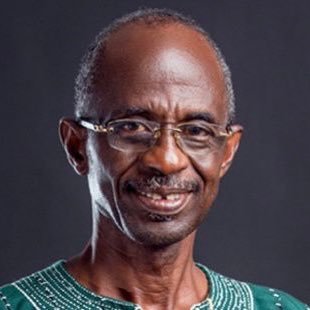Navigating Governance in Ghana Amidst Partisan Tensions

Two recent developments highlight a truth many Ghanaians observe every day—governing this country, with all its social and economic complexities, is incredibly difficult, especially in the midst of entrenched partisan divisions.
Those who step into public office—whether as Members of Parliament, ministers, or political appointees—know they are entering a space marked by constant scrutiny, competing interests, and pressure to deliver results. They deserve acknowledgment for the courage to take on such a task. Yet that courage must be matched by competence, discipline, and a deep sense of responsibility.
The work of governance involves crafting the right policies, navigating a sometimes cumbersome administrative system, and delivering on promises in the face of legitimate public demands for basic services. Add to that the ever-present blame game between political parties, and it becomes clear why progress is often slow and fragmented.
Still, those in leadership voluntarily accepted the challenge of service. Therefore, they must rise to meet the expectations of the people—not through excuses, but through action.
A Persistent Energy Sector Crisis
Last week, comments from the Minister for Energy and Green Transition, John Jinapor, before Parliament’s Energy Committee drew fresh attention to the country’s long-standing energy sector debt. The financial health of this sector is not a new concern. Past presidents—from Mahama to Akufo-Addo—have all acknowledged its challenges, citing massive debts, weak revenue collection, and poor compliance with key financial mechanisms like the Cash Waterfall Mechanism.
As of 2025, the financing shortfall is expected to balloon to over US$2.2 billion (GHS 34 billion). This is not the failure of a single administration but rather the result of accumulated policy missteps and structural inefficiencies.
Political debates tend to focus on which party is to blame. But the real issue lies in the underlying systems: how tariffs are set, how revenues are collected and distributed, and how contracts with independent power producers are managed. Until these structural flaws are fixed, Ghana’s energy sector will remain a financial sinkhole, regardless of which party holds power.
The implications are enormous. Without reliable and affordable electricity, businesses suffer, households are inconvenienced, and economic growth is stifled. This sector is too vital to be used as political ammunition. It demands a bipartisan commitment to reform.
The Cedi’s Recent Gains – A Moment for Reflection
Similarly, recent improvements in the cedi’s performance have triggered another round of partisan interpretation. Some credit the government and Bank of Ghana’s policy measures. Others argue it’s largely due to global factors, such as a weakening US dollar.
In reality, both views may hold some truth. But what matters more is that Ghana works towards a stable and predictable exchange rate that supports long-term business planning and investor confidence.
Currency fluctuations affect every Ghanaian. When the cedi depreciates, prices go up. When it strengthens, there’s relief—but often temporary. What’s needed is not just celebration during good times, but a clear, long-term strategy to maintain currency stability. This includes export diversification, import substitution, and prudent fiscal management.
Moving Forward: Purpose Over Politics
Ghana is a multiparty democracy, and political debate is part of that system. But when these debates become toxic and unproductive, they hinder progress. Partisanship should not prevent leaders from working together on issues that matter to all Ghanaians—whether it’s electricity, roads, schools, or healthcare.
At the end of the day, the average citizen does not care who gets the credit for a functioning power grid or clean water supply. They simply want results.
For Ghana to truly move forward, our politics must mature. Consensus-building, policy continuity, and a shared commitment to the national interest must take precedence over short-term political wins.
The time for finger-pointing is over. The work of nation-building calls. Let’s get on with it.






